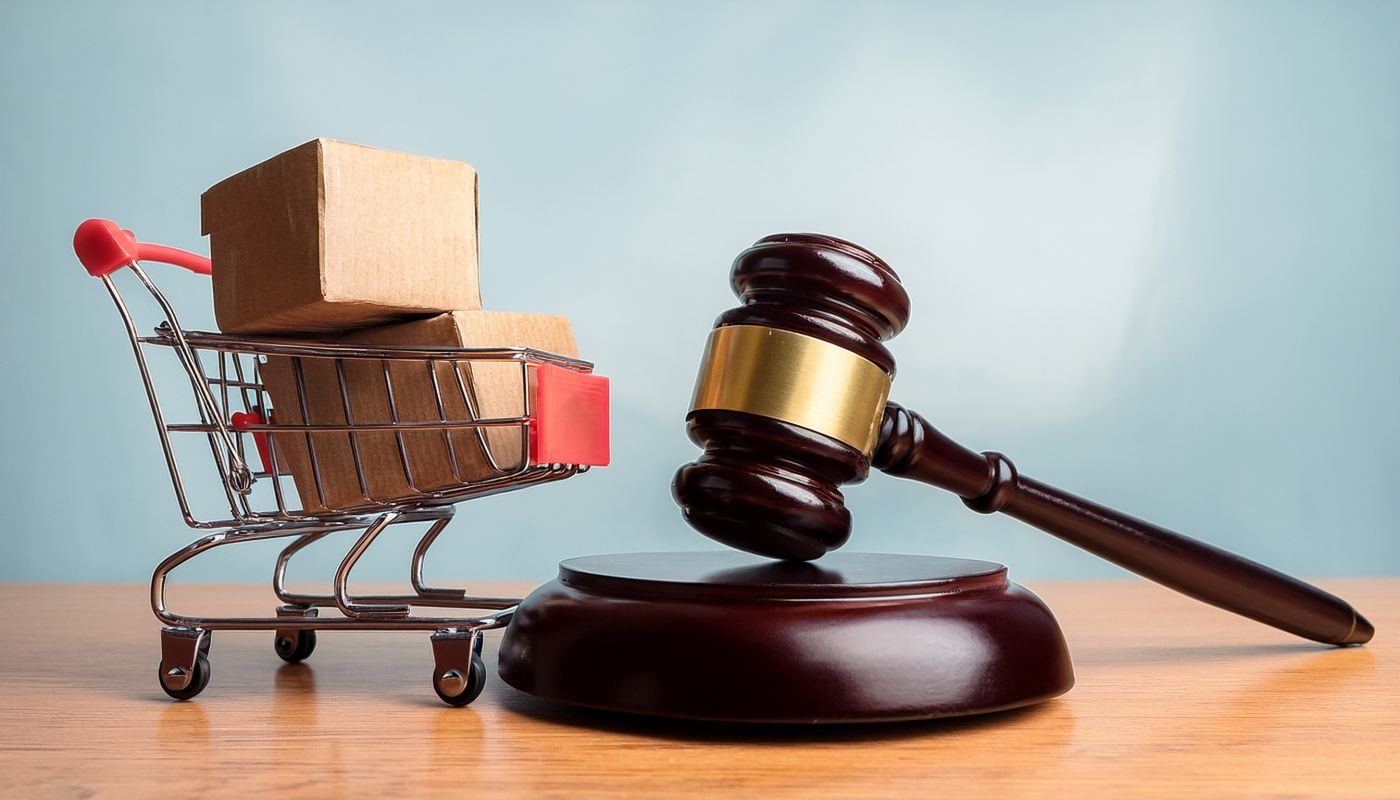
Data breaches are a growing concern in the digital age, and they have serious legal and financial consequences for businesses and consumers alike. As businesses rely more heavily on digital tools and online platforms, they also face increased risks of having their customers' personal information compromised. When this happens, there are laws in place that govern how businesses should respond.
At Scott Hirsch Law Group, located in Coconut Creek, Florida, we know how important it is for businesses to understand their legal responsibilities in the event of a data breach. We are here to help guide you through those responsibilities, offering expert legal guidance to navigate this often-complicated process.
What Is a Data Breach?
A data breach occurs when unauthorized individuals gain access to confidential or personal information. This can include sensitive data such as names, addresses, Social Security numbers, credit card information, medical records, and more.
As companies increasingly store vast amounts of personal data in digital formats, the risk of a data breach has significantly grown. In the event of such an incident, businesses must act quickly and in compliance with several legal requirements to protect their customers and mitigate the damage.
As we proceed, it’s important to understand the scope of what constitutes a data breach. This will allow businesses to ensure they meet their obligations under the law when one occurs.
The following types of information are typically affected in data breaches:
Personal identification data – Includes names, birthdates, and Social Security numbers.
Financial data – Includes credit card details, bank accounts, and other payment information.
Health information – Includes medical records and other health-related data.
User credentials – Includes usernames, passwords, and security questions/answers.
Each of these data types can be exploited in various ways, including identity theft, fraud, and unauthorized access to sensitive services. When a breach affects these types of data, businesses must act swiftly to protect their customers and mitigate potential damage.
Florida’s Data Breach Notification Law
Florida has its own specific set of rules for how businesses should handle data breach incidents, especially when customer data is involved. Under Florida’s Data Breach Notification Law, businesses are required to inform consumers when their personal data has been exposed or compromised. This notification must be done in a timely manner to give affected individuals a chance to take protective actions, such as placing fraud alerts or freezing their credit.
Businesses are also obligated to report the breach to the Florida Attorney General if more than 500 residents are affected. If more than 1,000 residents are affected, the business must notify all credit reporting agencies within 30 days.
Steps under Florida’s data breach law:
Promptly notify affected individuals – Once a breach is discovered, businesses must inform those whose data has been exposed.
Notify the Florida Attorney General – If the breach involves 500 or more residents, the state’s office must be informed.
Provide remedies to affected individuals – Businesses may be required to offer credit monitoring or other protective services.
These steps are just the beginning. Depending on the scope of the breach and the nature of the affected data, businesses may have additional obligations to safeguard their consumers' personal information.
Federal Legal Obligations for Companies in Data Breaches
In addition to state laws, businesses in Florida must also comply with federal regulations that govern data breaches. These regulations can often be more comprehensive and far-reaching. The most notable of these is the Health Insurance Portability and Accountability Act (HIPAA) for healthcare organizations and the Gramm-Leach-Bliley Act (GLBA) for financial institutions.
Key federal data breach regulations:
HIPAA (Health Insurance Portability and Accountability Act) – Requires healthcare providers, insurance companies, and other healthcare-related organizations to protect patient information. A data breach involving medical records requires notifying both affected individuals and the Department of Health and Human Services.
GLBA (Gramm-Leach-Bliley Act) – This applies to financial institutions. They must notify consumers if their personal financial information has been compromised in a data breach.
FTC Act (Federal Trade Commission Act) – Under the FTC Act, businesses that fail to protect customer data may be subject to legal action for unfair or deceptive trade practices.
Failure to comply with these federal laws can result in penalties, lawsuits, and reputational damage. This underscores the importance of understanding and adhering to both state and federal data protection regulations.
Consequences for Businesses That Fail to Respond to Data Breaches
When a company fails to respond appropriately to a data breach, it can face serious legal and financial consequences. Legal ramifications are especially severe when businesses fail to notify customers or the appropriate authorities in a timely manner. Non-compliance with data breach notification laws can lead to fines, lawsuits, and significant damage to a company’s reputation.
Consequences of non-compliance include:
Fines and penalties – Both state and federal authorities may impose fines for failing to notify customers or regulatory agencies about a breach.
Civil lawsuits – Affected individuals may sue for damages, including identity theft or financial loss.
Reputational damage – A company that mishandles a data breach may lose the trust of its customers, resulting in lost business opportunities.
By failing to act swiftly and legally following a data breach, businesses expose themselves to costly consequences that go beyond immediate legal ramifications.
Best Practices for Preventing Data Breaches
While no company can entirely eliminate the risk of a data breach, there are several best practices businesses can implement to reduce the likelihood of one occurring. These measures not only help protect sensitive data but also ensure that companies are ready to respond effectively should a breach occur.
Key best practices for data protection include:
Use encryption for sensitive data – Encrypting sensitive data both in transit and at rest can prevent unauthorized access.
Implement strong access control policies – Limit employee access to sensitive data and require strong authentication.
Regularly update security systems – Regular software updates and patches prevent vulnerabilities from being exploited.
Conduct regular security audits – Periodic audits help identify and rectify weaknesses in your data protection measures.
Train employees on data security – Ensuring that employees understand data security best practices can significantly reduce human error.
Implementing these practices can go a long way in helping businesses protect themselves from the potentially catastrophic impact of a data breach.
The Importance of Legal Counsel
When a data breach occurs, businesses must respond quickly and appropriately to mitigate the damage. Legal counsel plays a crucial role in this process, helping businesses navigate the complex regulations and protect their interests.
At Scott Hirsch Law Group, we specialize in assisting businesses with data breach response and compliance. Our team provides guidance through every step, from notification to customer communication, to ensure that your business complies with all relevant laws and minimizes exposure to legal risks.
How legal counsel can help:
Data breach response planning – Helping companies prepare a response plan that complies with state and federal laws.
Notification to consumers – Advising on the appropriate method and timing for notifying affected individuals.
Regulatory compliance – Assisting in meeting state and federal data breach notification requirements.
Managing litigation risks – Providing defense strategies in the event of lawsuits arising from the breach.
Having an attorney experienced in data breach law can protect your company’s interests and guide you through the legal complexities of the situation.
Don't Face Challenges Alone
If your business has experienced a data breach or you need guidance on data security and breach prevention, Scott Hirsch Law Group is here to assist. We provide comprehensive legal support to help businesses in Florida and across the country navigate their legal responsibilities in the wake of a data breach. Located in Florida, and serving clients nationwide, we’re ready to help. Reach out to us today to schedule a consultation with our team.



